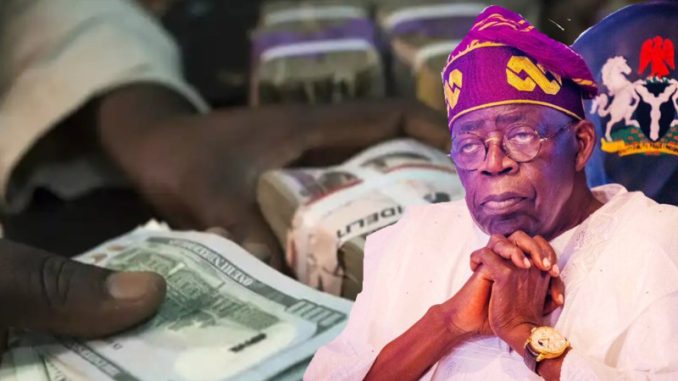
By Obinna Ejianya (9News Nigeria – Melbourne, Australia)
It is without any doubt that President Tinubu’s government is committed to implementing economic reforms aimed at improving the lives of Nigerians who are already choking to death by the harsh economic hardship that has hitherto engulfed the country.
These stringent reforms by Tinubu’s government have included measures such as the Central Bank of Nigeria’s reshuffles, stricter policies on banks and Bureau de Change operators, interest rate hikes, financial policies, and the promotion of locally-made products. However, the idea of putting the cart before the horse always leads to going nowhere because it takes the horse to move the cart. The economic situation in the country does not require any gymnastics of political correctness, make-believe packaging, or rhetorical economic jargon, but it requires a common-sense, basic approach, as I have been emphasizing in numerous other publications and media interviews.
It is crucial to prioritize and address certain fundamental issues to achieve meaningful progress. One of these issues is the removal of the fuel subsidy, which continues to haunt, hurt, and hinder the Nigerian economy.
Although there are ostensible claims that the government has been compensating for the removal of the subsidy, paying secrete monies to make up for the subsidy, this approach only exacerbates the situation due to widespread corruption.
Subsidizing fuel through clandestine or shady means only benefits corrupt individuals and further burdens the people unendingly. Therefore, it is essential for the Bola Ahmed Tinubu-led government to officially announce the annulment of the fuel subsidy removal. This step would create transparency, reduce fuel prices, and alleviate the toxic economic atmosphere in Nigeria. Additionally, the government should establish a robust structure to ensure accountability for fuel subsidy payments and take strict action against corrupt practices, including heavy fines and license suspensions.
It is important to note that the high cost of fuel in Nigeria negatively impacts the economy and contributes to the depreciation of the Naira. Foreign exchange rates are closely linked to local production costs for goods and services. As long as the cost of production and distribution remains high, the GDP will suffer.
The removal of fuel subsidies by President Bola Tinubu’s government has led to a significant increase in fuel prices (petrol, gas, and diesel), more than doubling the previous prices. This increase has had a ripple effect on the costs of goods and services, causing hyperinflation in the country.
It is common sense that when the average per capita income in Nigeria is significantly lower than in other developing and developed countries, Nigerians should not be expected to pay fuel prices that are nearly double those in those countries.
Comparing Nigeria’s fuel prices to those of countries with much higher incomes is misleading. For instance, as of January 2024, the average price of gasoline in the United States was $3.66 per gallon, equivalent to approximately $1 per liter. In contrast, in Nigeria, the average price of gasoline was 668.3 Nigerian naira (NGN) per liter, which is around 0.41 U.S. dollars. When the average monthly salary is 30,000 Naira, which is below the daily wage of an average worker in developed countries, such a comparison is unjustifiable.
Furthermore, the exchange rate between the U.S. dollar and the Nigerian Naira has worsened over time. In December 2022, 1 USD was equivalent to 448 NGN, whereas today, 1 USD is equivalent to 1,280.02 NGN at the official exchange rate in Nigeria. The average per capita income in the United States is 35 times higher than that of Nigeria, highlighting the vast disparity between the two countries. Therefore, comparing fuel prices between Nigeria and countries with significantly higher incomes is not appropriate.
In Libya, another oil-producing country like Nigeria, fuel is sold for 0.15 Libyan Dinar (LYD) or USD 0.031 per liter, which is approximately 40 Nigerian Naira.
While the Tinubu-led government may argue that removing fuel subsidies is necessary to save money, it is important to consider the adverse effects of significantly increased fuel costs. These costs have a ripple effect on production expenses, leading to a decline in productivity and consequently affecting the country’s GDP.
In Nigeria, where electricity supply is unreliable, most aspects of production rely heavily on generator sets, which, in turn, depend on fuel availability. Any disruption or increase in fuel costs directly impacts production and business operations, including transportation. The fuel market, encompassing gasoline, petrol, gas, and diesel, is the lifeblood of Nigeria’s productivity in terms of manufacturing, production, and transportation of goods and services, ultimately influencing the country’s GDP.
All the major indicators that determine a currency’s exchange rate, such as GDP, export-import ratio, market sentiment, speculation, inflationary forces, central bank policies, and government policies, are significantly affected by production costs, which still heavily rely on fuel availability and cost in Nigeria.
It is pertinent to take into account that with the high cost of fuel in Nigeria, the economy will continue to do badly and the Naira value will continue to nose-dive considering that every aspect of foreign exchange rate indicators is directly or indirectly linked to the local production of goods and services, and so long as the cost of production and distribution is high, the GDP will be very poor.
Therefore, in order to stabilize the Naira and the economy, the government must prioritize reducing fuel prices to a minimum until reliable electricity is available to power production to a greater extent.
By Obinna Ejianya (9News Nigeria – Melbourne, Australia)

